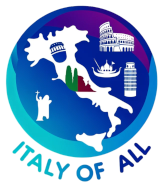The province of Pisa, located in the western part of Tuscany, Italy, is renowned for its rich historical legacy, iconic architectural landmarks, and vibrant academic culture. Pisa is most famous globally for its Leaning Tower, but the city and surrounding province offer a deep cultural heritage and scenic landscapes that make it a significant area in Tuscany.
Geographically, Pisa is characterized by its diverse terrain, which includes the coastal Tirrenian Sea to the west, the Arno river flowing through the city, and rolling Tuscan hills dotted with olive groves and vineyards in the countryside. This varied landscape provides a picturesque setting that transitions from the bustling city to tranquil rural areas, offering a variety of outdoor and recreational activities.
Historically, Pisa has a storied past that dates back to the Etruscans and was later a significant Roman port and maritime republic. Its golden age during the medieval period saw it become a major naval power, which is evident in its wealth of architectural treasures from this era, including the Piazza dei Miracoli, where the cathedral, baptistery, and the famous bell tower stand. The city’s maritime prowess also led to cultural and trade exchanges that enriched its cultural fabric.
Culturally, Pisa is a hub of education and research, home to one of Italy’s oldest and most prestigious universities, the University of Pisa, founded in 1343. The presence of the university infuses the city with a vibrant academic atmosphere, contributing to its rich intellectual life. Pisa also celebrates a variety of cultural events and festivals, such as the Luminara Festival, where thousands of candles light up the banks of the Arno river, and the historical Regatta of the Ancient Maritime Republics, reflecting its historical maritime traditions.
Cuisine in Pisa is typical of coastal Tuscany, with a strong emphasis on both seafood and produce from the surrounding countryside. Local specialties include “cecina,” a thin cake made from chickpea flour, and dishes featuring game from the nearby hills and fish from the Tyrrhenian Sea. The province also produces fine wines, such as those from the San Torpè areas, adding to its gastronomic appeal.
Economically, Pisa’s economy is diversified, encompassing higher education and research, agriculture, manufacturing, and services. Tourism plays a significant role, driven by Pisa’s global reputation and its historical and architectural sites. The city is also a center for medical research and IT, supported by the university and various research institutions.
Despite challenges such as managing the impact of tourism on its historic sites and urban environment, Pisa continues to invest in the preservation of its cultural heritage while promoting sustainable and culturally respectful tourism practices.
Overall, the province of Pisa offers a compelling mix of historical depth, cultural richness, and academic vibrancy. Its ongoing commitment to preserving its architectural and cultural heritage while fostering innovation and sustainable development ensures its continued importance as a dynamic and attractive region in Tuscany.
Comuni in Pisa Province:
- Bientina
- Albiano
- Calci
- Castelfranco di Sotto
- Castellina Marittima
- Capannoli
- Castelnuovo di Val di Cecina
- Cascina
- Casciana Terme
- Casale Marittimo
- Calcinaia
- Costa de’ Nobili
- Fascia Fauglia
- Crespina
- Chianni
- Guardistallo
- ** Lajatico
- Monteverdi Marittimo
- Orciano Pisano
- Montopoli in Val d’Arno
- Palaia
- Montecatini Val di Cecina
- Montescudaio
- Peccioli
- Pontedera
- Pisa
- Riparbella
- Pomarance
- Ponsacco
- Santa Maria a Monte
- Sovara
- ** San Giuliano Terme
- Santa Croce sull’Arno
- San Miniato
- Santa Luce
- Volterra
- Vecchiano
- Vicopisano
- Uta Uzzano
- Terricciola
